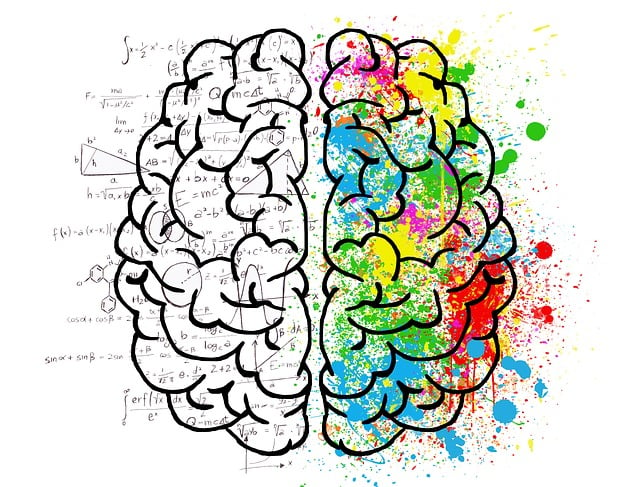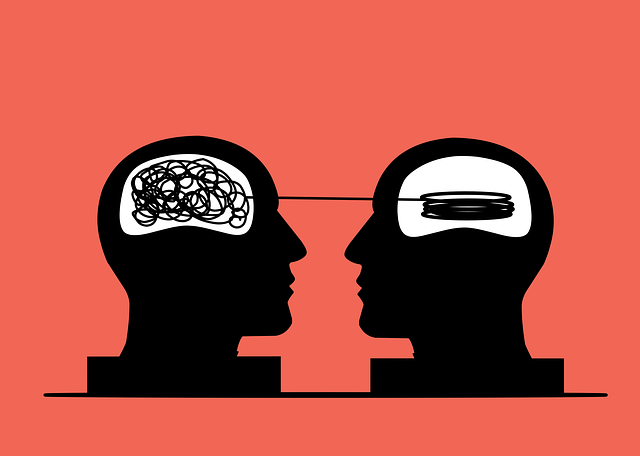Social anxiety, driven by genetics, brain chemistry, trauma, and culture, causes intense fear in social settings, impacting daily life. Recognizing symptoms is crucial for effective anxiety treatment. Therapeutic approaches like Cognitive Behavioral Therapy (CBT), Exposure Therapy, Mindfulness-Based Therapies, and Group Therapy offer personalized strategies to manage symptoms and enhance well-being. While CBT targets negative thought patterns, Exposure Therapy builds confidence through gradual exposure, and Mindfulness empowers present-moment awareness. Group therapy leverages peer support for mutual understanding and coping strategy sharing. Ongoing support post-program reinforces progress and ensures long-term success in anxiety treatment.
Social anxiety can significantly impact daily life, but help is available through various therapeutic services. This article explores effective strategies for overcoming social anxiety, from understanding its causes and symptoms to delving into specific therapeutic approaches. We cover cognitive behavioral therapy (CBT), exposure therapy, mindfulness-based interventions, group therapy, and additional resources. Discover how these evidence-based methods can empower individuals to manage and overcome their anxiety, offering lasting relief and improved quality of life.
Understanding Social Anxiety: Causes and Symptoms

Social anxiety, or social phobia, is a common mental health condition that can significantly impact an individual’s daily life and overall well-being. It involves an intense, persistent fear of social situations where one feels judged, evaluated, or embarrassed. Understanding the causes and symptoms of social anxiety is crucial in seeking effective anxiety treatment.
Several factors contribute to the development of this phobia, including genetic predisposition, brain chemistry, past traumatic experiences, and cultural influences. Symptoms manifest as an excessive worry about social interactions, a fear of embarrassment or failure, and often include physical manifestations like increased heart rate, sweating, trembling, or blushing. These symptoms can be debilitating, affecting one’s ability to engage in everyday activities, form relationships, and even attend work or school. Recognizing these signs is the first step towards finding appropriate anxiety treatment and improving one’s quality of life.
Therapeutic Approaches for Overcoming Social Anxiety

Overcoming social anxiety involves a range of therapeutic approaches designed to help individuals navigate and manage their symptoms effectively. Cognitive Behavioral Therapy (CBT) is one of the most effective evidence-based methods for treating social anxiety disorder. CBT focuses on identifying and changing negative thought patterns and behaviors that contribute to fear and avoidance in social situations. Through this process, individuals learn to challenge and replace irrational fears with more realistic and positive thoughts, gradually exposing themselves to social interactions without distress.
Another powerful tool is Exposure Therapy, which involves gradual and controlled exposure to feared social scenarios. This approach helps individuals face their anxiety in a safe environment, allowing them to build confidence and reduce the intensity of anxiety responses over time. Additionally, Mindfulness-Based Therapies teach present-moment awareness and non-judgmental acceptance of thoughts and feelings, empowering individuals to manage anxiety symptoms as they arise. These therapeutic methods offer personalized strategies for managing social anxiety, fostering a sense of control, and enhancing overall well-being.
Cognitive Behavioral Therapy (CBT): A Popular Choice

Cognitive Behavioral Therapy (CBT) is a widely recognized and effective approach for managing social anxiety disorders. It focuses on identifying and changing negative thought patterns and behaviors that contribute to fear and avoidance in social situations. CBT helps individuals challenge their anxious thoughts, replacing them with more realistic and positive ones. By learning coping strategies, patients can gradually face feared social scenarios, reducing anxiety over time.
This therapeutic method is popular due to its structured nature and proven success rates. It empowers individuals to take control of their anxiety by understanding the connection between thoughts, feelings, and behaviors. CBT offers practical tools for managing symptoms, improving self-confidence in social settings, and enhancing overall well-being, making it a preferred choice in the realm of anxiety treatment.
Exposure Therapy: Confronting Fears in a Safe Environment

Exposure therapy is a powerful technique within the realm of social anxiety therapeutic services, offering individuals a way to confront and overcome their fears in a controlled, safe environment. This method involves gradually exposing clients to socially stressful situations, helping them realize that their anxieties are often exaggerated. By facing their fears step by step, patients learn to manage their responses and realize that the worst-case scenarios they imagine rarely, if ever, come to pass.
The process starts with identifying specific social situations that trigger anxiety, such as public speaking or meeting new people. The therapist then creates a structured hierarchy of these scenarios, from least anxious to most frightening. During sessions, clients engage in simulated or real-life exposures, allowing them to experience the anxiety without the actual threat. Over time, this desensitization leads to reduced anxiety responses and empowers individuals to navigate social interactions more confidently, effectively transforming their anxiety into manageable stress.
Mindfulness-Based Interventions: Calm the Mind, Enhance Self-Awareness

Mindfulness-Based Interventions are a powerful tool in the arsenal of anxiety treatment. These techniques focus on training individuals to be present and fully engaged with their current experiences, rather than dwelling on past mistakes or worrying about the future. By cultivating mindfulness, people with social anxiety can learn to observe their thoughts and feelings without judgment, creating a sense of calm and self-awareness.
This heightened awareness allows individuals to recognize anxious patterns and triggers, empowering them to respond thoughtfully instead of reacting impulsively. Mindfulness practices, such as meditation and mindful breathing exercises, have been shown to reduce symptoms of anxiety and improve overall well-being. By integrating these techniques into therapy sessions, individuals can gain better control over their anxiety responses, fostering more confident social interactions.
Group Therapy: The Power of Peer Support and Connection

Group therapy offers a unique and powerful approach to anxiety treatment, focusing on the strength of human connection and mutual support. In a safe and supportive environment, individuals with social anxiety can interact with peers facing similar challenges. This shared experience fosters a sense of belonging and understanding, breaking down feelings of isolation often associated with anxiety disorders. Through group discussions, members learn from one another’s strategies to cope with anxious thoughts and behaviors, gaining valuable insights and tools to manage their symptoms effectively.
The power of peer support in group therapy is undeniable. Being surrounded by people who ‘get it’ can provide a sense of validation and encourage participants to open up about their struggles. This openness creates an opportunity for individuals to realize they are not alone in their battle against social anxiety, fostering hope and resilience. Moreover, group members can offer encouragement and positive reinforcement, boosting self-esteem and confidence, which are often compromised by anxiety disorders.
Additional Resources and Support for Continuous Growth

Social anxiety therapeutic services don’t stop at the completion of a program. Continuous growth and support are vital for long-term success in anxiety treatment. Many professionals offer ongoing resources, such as regular check-ins, peer support groups, and additional therapy sessions, to help individuals reinforce their progress and manage ongoing challenges.
These extended services create a network of support that goes beyond the clinical setting. Through these channels, those seeking anxiety treatment can access valuable tools, practical strategies, and encouragement from both professionals and peers, fostering a sense of community and resilience as they navigate life with reduced anxiety.
